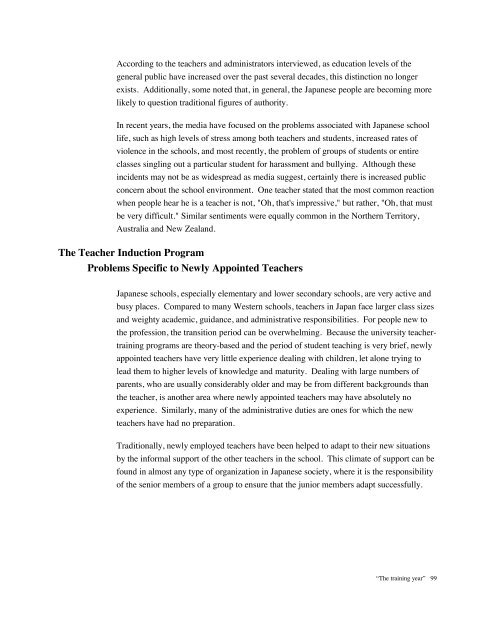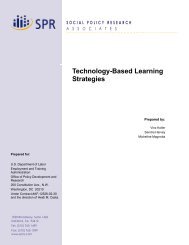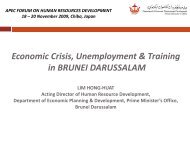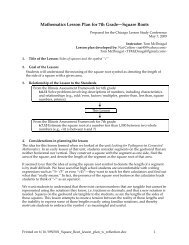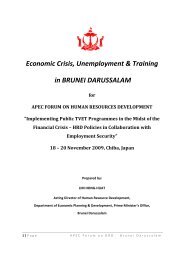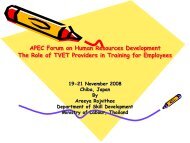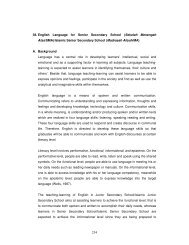TEACHER INDUCTION IN JAPAN
TEACHER INDUCTION IN JAPAN
TEACHER INDUCTION IN JAPAN
You also want an ePaper? Increase the reach of your titles
YUMPU automatically turns print PDFs into web optimized ePapers that Google loves.
According to the teachers and administrators interviewed, as education levels of thegeneral public have increased over the past several decades, this distinction no longerexists. Additionally, some noted that, in general, the Japanese people are becoming morelikely to question traditional figures of authority.In recent years, the media have focused on the problems associated with Japanese schoollife, such as high levels of stress among both teachers and students, increased rates ofviolence in the schools, and most recently, the problem of groups of students or entireclasses singling out a particular student for harassment and bullying. Although theseincidents may not be as widespread as media suggest, certainly there is increased publicconcern about the school environment. One teacher stated that the most common reactionwhen people hear he is a teacher is not, "Oh, that's impressive," but rather, "Oh, that mustbe very difficult." Similar sentiments were equally common in the Northern Territory,Australia and New Zealand.The Teacher Induction ProgramProblems Specific to Newly Appointed TeachersJapanese schools, especially elementary and lower secondary schools, are very active andbusy places. Compared to many Western schools, teachers in Japan face larger class sizesand weighty academic, guidance, and administrative responsibilities. For people new tothe profession, the transition period can be overwhelming. Because the university teachertrainingprograms are theory-based and the period of student teaching is very brief, newlyappointed teachers have very little experience dealing with children, let alone trying tolead them to higher levels of knowledge and maturity. Dealing with large numbers ofparents, who are usually considerably older and may be from different backgrounds thanthe teacher, is another area where newly appointed teachers may have absolutely noexperience. Similarly, many of the administrative duties are ones for which the newteachers have had no preparation.Traditionally, newly employed teachers have been helped to adapt to their new situationsby the informal support of the other teachers in the school. This climate of support can befound in almost any type of organization in Japanese society, where it is the responsibilityof the senior members of a group to ensure that the junior members adapt successfully.“The training year” 99


